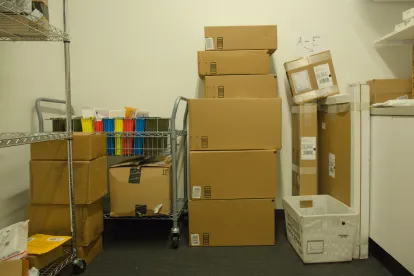In Innes v. Diablo Controls, Inc., Case No., A145528, 2016 Cal. App. LEXIS 475 (Cal. App. June 16, 2016), the California Court of Appeal, First District, affirmed that California Corporations Code § 1601, which permits shareholders to demand inspection of “[t]he accounting books and records and minutes of proceedings of the shareholders and the board and committees of the board” of corporations in California, does not require a corporation to make those records available at any particular location. The records need only be made available for inspection at the office where the records are usually maintained. This holding confirms that corporations are not required to ship records normally stored out of state to California in response to a demand under Section 1601.
In 2015, shareholders of Diablo Controls, Inc. (“Diablo Controls”), a California corporation, demanded to inspect Diablo Controls’ accounting books and records at the company’s California office. Diablo Controls shipped the requested records from Illinois to California, and allowed the shareholder to inspect the records in Diablo Controls’ California office. The shareholders found the records to be incomplete, so Diablo Controls sent copies of additional records to the California office and made them available for inspection. The shareholders again argued that the records were incomplete. This time, Diablo Controls opposed the the shareholders’ request for more documents, arguing that Section 1601 only obligated them to make the records available in the Illinois office where the records were stored. The trial court agreed with Diablo Controls and denied appellants’ petition for writ of mandate.
The Court of Appeal affirmed. The Court held that the plain language of Section 1601 did not require Diablo Controls to makes its records available for inspection in California when they were normally kept in Illinois. Section 1601 provides that records “shall be open to inspection upon the written demand on the corporation of any shareholder . . . at any reasonable time during usual business hours.” Viewing the words in context and giving them their ordinary meaning, the Court held that there was no basis for imposing a requirement that the inspections take place in California. Agreeing with Jara v. Suprema Meats, Inc., 121 Cal.App.4th 1238, 1263 (2004), the Court concluded that the language of Section 1601 clearly implies that the records may be inspected “at the office where the records are kept,” and does not require the corporation to send records to California for inspection.
In reaching this conclusion, the court also highlighted the differences between Section 1601 and Corporations Code § 213. Section 213 requires a corporation to keep a copy of its bylaws in its principal business office in California, and requires a corporation without such a California office to furnish a copy to a shareholder upon request. The Court concluded that the absence of a similar provision in Section 1601 confirmed its interpretation that Section 1601 is not intended to impose requirements on where a corporation must keep or make records available for inspection.
The Court rejected three other arguments put forth by the shareholders. First, the Court rejected the argument that Section 1601 requires a corporation to keep Section 1601 records in its principal business office. Next, the Court rejected the argument that Diablo Controls’ previous agreement to bring the records to California had any bearing on whether appellants were entitled to compel Diablo Controls to do so. Finally, the Court acknowledged that, under this interpretation of the statute, a corporation could try to stymie inspection by purposefully maintaining its records at a remote location making it impracticable for shareholders to inspect them. The Court agreed that storing records in remote locations in order to impede inspection would be contrary to the purpose of Section 1601, but declined to consider the issue further because there was no evidence of such obstruction in this case.
Diablo Controls clarifies an important point of statutory interpretation regarding Section 1601. Under the Court’s ruling, Section 1601 imposes no requirements on where a corporation keeps it records, nor does it require a corporation to transport records for inspection to a location other than where the records are normally stored. Shareholders attempting to inspect records that are normally maintained out of state must decide if their interest in inspecting the records is worth travelling for the requested inspection.




 />i
/>i

